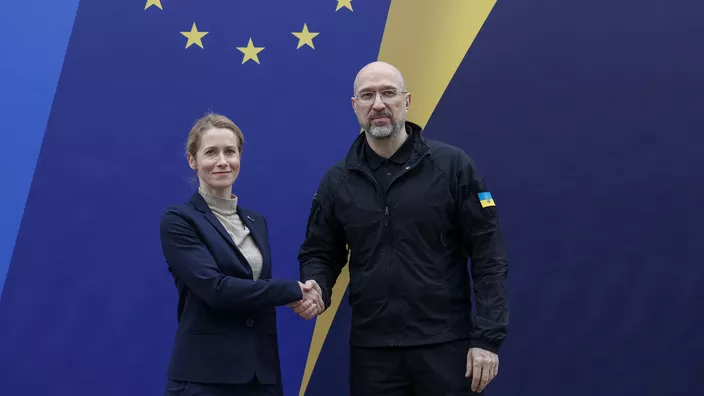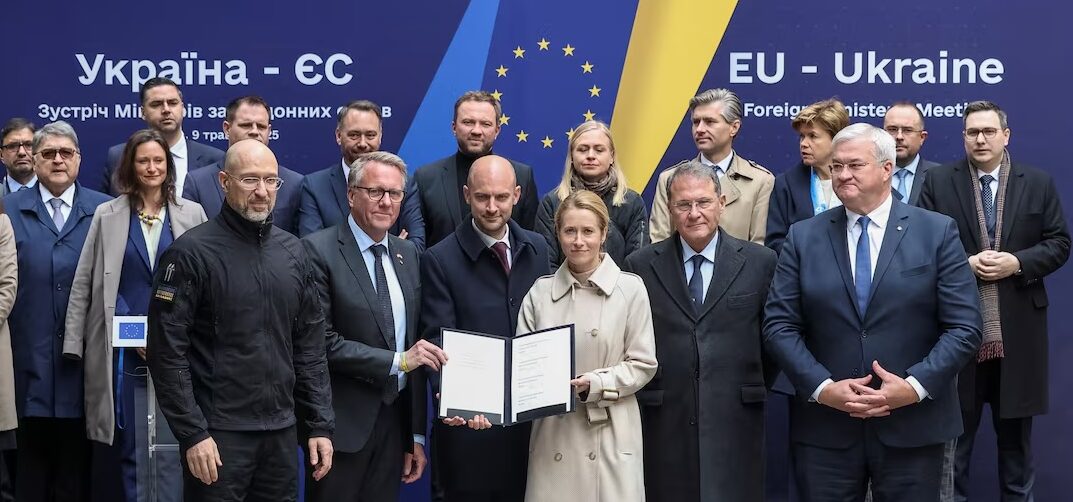On Europe Day, several foreign ministers from European Union member states gathered in Lviv, Ukraine, to express their support for the establishment of a special tribunal to prosecute the crime of aggression committed against Ukraine.
This strong political signal, announced the day before by EU foreign policy chief Kaja Kallas, aims to reinforce international justice mechanisms. “There will be no impunity,” she stated, underscoring the EU’s determination to hold Russia’s top leadership accountable.
The Council of Europe clarified that if individuals from Belarus or North Korea are found guilty of participating in the crime of aggression against Ukraine, they too could face prosecution.
The special tribunal will complement the work of the International Criminal Court (ICC), which has already issued arrest warrants for several Russian officials, including President Vladimir Putin. Its role will be to address existing gaps in international law—especially when it comes to prosecuting crimes of aggression.
“We welcome the completion of the technical work on the legal instruments needed to establish, within the framework of the Council of Europe, a special tribunal for the crime of aggression against Ukraine,”
— joint statement released by the Ukrainian Ministry of Foreign Affairs

Kaja Kallas, High Representative of the European Union for Foreign Affairs, and Denys Shmyhal, Prime Minister of Ukraine
Photo: Roman Baluk / REUTERS
This initiative is part of a process that has been underway for several months. On February 3–4, 2025, a meeting was held in Brussels, bringing together legal experts from 40 countries, along with representatives from the European Union and the Council of Europe, to lay the groundwork for this future tribunal.
In parallel, a register of damages caused by Russian aggression has already been established, and an international compensation mechanism is expected to follow. These measures aim to ensure that Ukrainian victims may one day receive reparations.
Kaja Kallas also announced the release of one billion euros to support Ukraine’s defense industry, funded by interest generated from frozen Russian assets in Europe — another clear signal of Europe’s determination to stand with Ukraine in the face of aggression.
It is now crucial to take the next step by seizing the full amount of frozen Russian assets to provide concrete financing for Ukraine’s defense, its reconstruction, and the security of the European continent.
In that spirit, on March 12, 2025, the French National Assembly adopted a resolution calling on the European Union and its member states to immediately proceed with the full seizure of frozen Russian assets — to ensure that it is the aggressor who pays the cost of the war.

